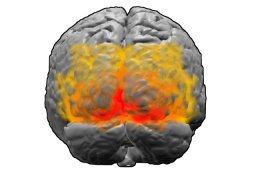Wishful thinking
Wishful Thinking is a psychological phenomenon and cognitive bias that causes a person to believe that something is true or will happen based on their desires, rather than on evidence or reality. This bias can affect various aspects of life, including decision-making, beliefs, and behaviors, leading individuals to make conclusions that are more aligned with their hopes than with factual information or logical reasoning.
Definition[edit | edit source]
Wishful thinking occurs when a person's desires and preferences influence their judgments and decisions, leading them to interpret information in a way that supports their wishes. This can result in a distortion of perception, memory, and reasoning processes. The phenomenon is closely related to the concept of motivated reasoning, where individuals are motivated to arrive at a particular conclusion and selectively process information to achieve that outcome.
Mechanisms[edit | edit source]
The mechanisms behind wishful thinking involve cognitive and motivational factors. Cognitive factors include the biases and heuristics that the brain uses to process information efficiently but can lead to errors in judgment. Motivational factors involve the emotional investment in the desired outcome, which can overshadow objective assessment of facts.
Examples[edit | edit source]
Wishful thinking can manifest in various contexts, such as:
- In finance, investors might overestimate the potential returns of an investment because they desire financial gain.
- In health, individuals might believe that they are less susceptible to diseases or that alternative medicine can cure serious illnesses without scientific evidence supporting these beliefs.
- In relationships, people might convince themselves that a partner has feelings for them based on minimal evidence because they desire reciprocation.
Consequences[edit | edit source]
While wishful thinking can sometimes have positive effects by boosting motivation or optimism, it often leads to poor decision-making and unrealistic expectations. In the long term, this can result in disappointment, financial losses, or adverse health outcomes when the reality fails to match one's hopeful projections.
Counteracting Wishful Thinking[edit | edit source]
To counteract wishful thinking, individuals can practice critical thinking and seek out objective evidence before making decisions. Being aware of this bias and actively questioning one's motivations and assumptions can also help mitigate its effects.
See Also[edit | edit source]
This article is a psychology-related stub. You can help WikiMD by expanding it!
Transform your life with W8MD's budget GLP1 injections in NYC from $125 and up biweekly
W8MD offers a medical weight loss program NYC and a clinic to lose weight in Philadelphia. Our W8MD's physician supervised medical weight loss centers in NYC provides expert medical guidance, and offers telemedicine options for convenience.
Why choose W8MD?
- Comprehensive care with FDA-approved weight loss medications including:
- loss injections in NYC both generic and brand names:
- weight loss medications including Phentermine, Qsymia, Contrave, Diethylpropion etc.
- Accept most insurances for visits or discounted self pay cost.
- Generic weight loss injections starting from just $125.00 for the starting dose
- In person weight loss NYC and telemedicine medical weight loss options in New York city available
Book Your Appointment
Start your NYC weight loss journey today at our NYC medical weight loss, and Philadelphia and visit Philadelphia medical weight loss Call (718)946-5500 for NY and 215 676 2334 for PA
Search WikiMD
Ad.Tired of being Overweight? Try W8MD's NYC physician weight loss.
Semaglutide (Ozempic / Wegovy and Tirzepatide (Mounjaro / Zepbound) available. Call 718 946 5500.
Advertise on WikiMD
|
WikiMD's Wellness Encyclopedia |
| Let Food Be Thy Medicine Medicine Thy Food - Hippocrates |
Translate this page: - East Asian
中文,
日本,
한국어,
South Asian
हिन्दी,
தமிழ்,
తెలుగు,
Urdu,
ಕನ್ನಡ,
Southeast Asian
Indonesian,
Vietnamese,
Thai,
မြန်မာဘာသာ,
বাংলা
European
español,
Deutsch,
français,
Greek,
português do Brasil,
polski,
română,
русский,
Nederlands,
norsk,
svenska,
suomi,
Italian
Middle Eastern & African
عربى,
Turkish,
Persian,
Hebrew,
Afrikaans,
isiZulu,
Kiswahili,
Other
Bulgarian,
Hungarian,
Czech,
Swedish,
മലയാളം,
मराठी,
ਪੰਜਾਬੀ,
ગુજરાતી,
Portuguese,
Ukrainian
Medical Disclaimer: WikiMD is not a substitute for professional medical advice. The information on WikiMD is provided as an information resource only, may be incorrect, outdated or misleading, and is not to be used or relied on for any diagnostic or treatment purposes. Please consult your health care provider before making any healthcare decisions or for guidance about a specific medical condition. WikiMD expressly disclaims responsibility, and shall have no liability, for any damages, loss, injury, or liability whatsoever suffered as a result of your reliance on the information contained in this site. By visiting this site you agree to the foregoing terms and conditions, which may from time to time be changed or supplemented by WikiMD. If you do not agree to the foregoing terms and conditions, you should not enter or use this site. See full disclaimer.
Credits:Most images are courtesy of Wikimedia commons, and templates, categories Wikipedia, licensed under CC BY SA or similar.
Contributors: Prab R. Tumpati, MD





